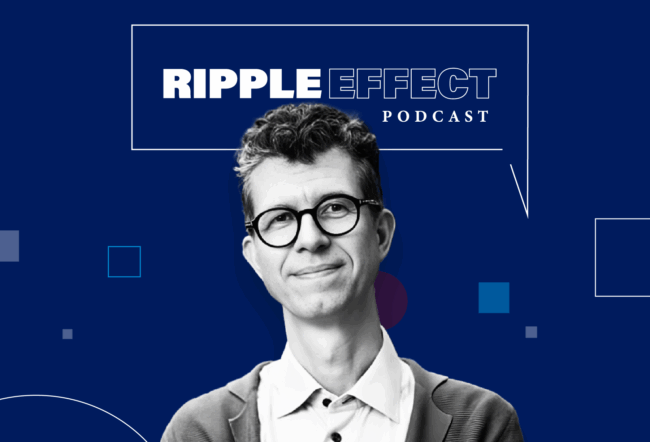Norman, an MBA student who just finished his first year, admits he cheats while he sleeps. No, it’s nothing to do with school; it’s for enhancing his music collection.
“Before I go to bed I go to Napster and just leave it running all night,” he says. “I can download five or ten songs in that time. Mostly, I end up listening to them while I’m reading in my room. I know what I’m doing is illegal, in a way stealing someone’s intellectual property. But I don’t feel guilty about doing this to the recording industry giants. They have been pretty mercenary over the years. Maybe the up-and-coming bands, but, well, it’s nothing that hasn’t been done before.”
What Napster is and How did it Become Embroiled in Legal Battles with the Music Industry?
Napster – the company that facilitates the sharing of MP3 files among computer users – is hoping the courts also feel the downloading of music is nothing that hasn’t been done before. The company has been sued by the Recording Industry Association of America, the main music industry trade group, and a slew of record labels. They allege that Napster is integral to a system of massive copyright infringement that results when its members trade songs on the service.
The Legal Dilemma: Is Napster Facilitating Piracy?
“It looks as if the courts are not going to be favorable to Napster,” says Wharton legal studies professor Dan Hunter. “As far as the ethics of it all are concerned, Napster and similar file-sharing companies are being childish. It must be perfectly clear that they are facilitating the pirating of copyrighted material. They say, ‘well, it’s someone else really doing it.’ But that doesn’t cut a lot of mustard. They are on very shaky ground.”
How Napster Users Share Music Files
What Napster users do is share computer files of songs. Essentially, one user may put a recording of a song on his or her hard drive. Napster then allows the second user to search for that particular song and, when the second user finds it, lets him or her download the computer file from the other hard drive to theirs. Various surveys have shown that an astounding number of people download copyrighted music to their computers. Webnoize, Inc., a media research website, found that 57% of college students surveyed use Napster once a week, and more than 70% use it once a month. The Pew Internet Project noted that 13 million Americans – almost all of them in the prime listening, computer-savvy age group of 18 to 49 – have downloaded music for free off the Internet. And according to SoundScan, record sales at stores close to heavily-wired college campuses have dropped 13% in the last three years.
Is the Content Sharing Napster Facilitates Really New?
Norman, the MBA student, claims that sharing music you don’t pay for goes back far beyond Napster. “Our parents made party tapes from other people’s records,” he says “People tape CDs all the time. It’s like speeding. If you aren’t doing it too much, it’s a law made to be broken. And the music industry will always try to fight it. They don’t seem to be losing much business over the years, though.”
The Future of Music in a Digital World
While the music industry is still thriving – it is a $15 billion a year business and album sales rose 7% in the first quarter of 2000 – some analysts believe the threat of digital downloading is different than threats in the past. I don’t believe in piracy, but given the digital revolution, what intellectual property means will change drastically,” says Wharton management professor Stephen J. Kobrin. “There may be a whole new load of different models for distribution. Nothing is written in the sky that every rock musician has to be a millionaire. The digital revolution is a tidal wave that will be unstoppable.”
The Legal Precedents Napster Hopes to Rely On
At the current moment, though, Napster and its fellow MP3-sharing companies like Gnutella and MP3.com are banking on the courts to look at them like the U.S. Supreme Court did the Sony Corporation of America in a 1984 case. Sony vs. Universal City Studios, Inc., said basically that Sony’s video recorders had more and better uses than merely recording copyrighted movies that its users never paid for. Mostly, the court said, VCRs were being used for time-shifting – essentially to record TV programs to be played at a later date. That was certainly not an illegal use and, despite the acknowledgment that there were, in fact, some illegal uses of the VCR, Sony was blameless because its intent was primarily to sell VCRs for legal uses.
Napster may not be so lucky.
“They are looking for a way to avoid this issue, but of course, the vast majority of stuff shared on the Internet is pirated,” says Hunter. “You can argue this all you want, but empirically this is not going to bear out for you. If I were a betting person, I wouldn’t be putting my hard-earned money in a private placement round for Napster,” he says.
Venture Capital and the Bet on Napster’s Future
But one of the more savvy venture capital firms in Silicon Valley, Hummer Winblad Venture Partners, recently did – investing $13 million in Napster and installing one of its partners, Hank Barry, as CEO of the San Mateo, Calif., company last month. Barry and Hummer Winblad believe that the digital revolution will make most of the issues now in play moot, and Wharton’s Kobrin speculates they may be right. “I think CDs are done,” he notes. “It’s ridiculous to record ones and zeros on a disc so people can buy something with eight songs on it, six of which they don’t want.
The Digital Revolution: Will Napster Change Music Forever?
“While it may be pirating now, I think that digital music will eventually be rentable. I might download an opera to my computer and get use of it for three days,” Kobrin says. “I remember my daughter, when she was younger, listening to a song for what seemed like half-a-second. Why should she buy a disc when she only wants to hear it for a few days? The payment streams will change. Someone will be making money from the music, but I don’t know yet who will collect the rents. Yet I assume it will be figured out.”
Hunter says the secret may be encryption, but even that doesn’t seem to work in the practical world. He notes that when Microsoft introduced a Windows media player software, its security was broken by hackers in one day. “You put out something that you say is secure and that’s like putting up a red rag to a bull for hackers. It’s their challenge.”
“Napster may be beaten down, but something else may no doubt come in its place,” he adds. “The record companies may be fighting a losing battle. There are at least 85,000 files of music sitting out there. It is extremely difficult to put the horse back in the barn.”



